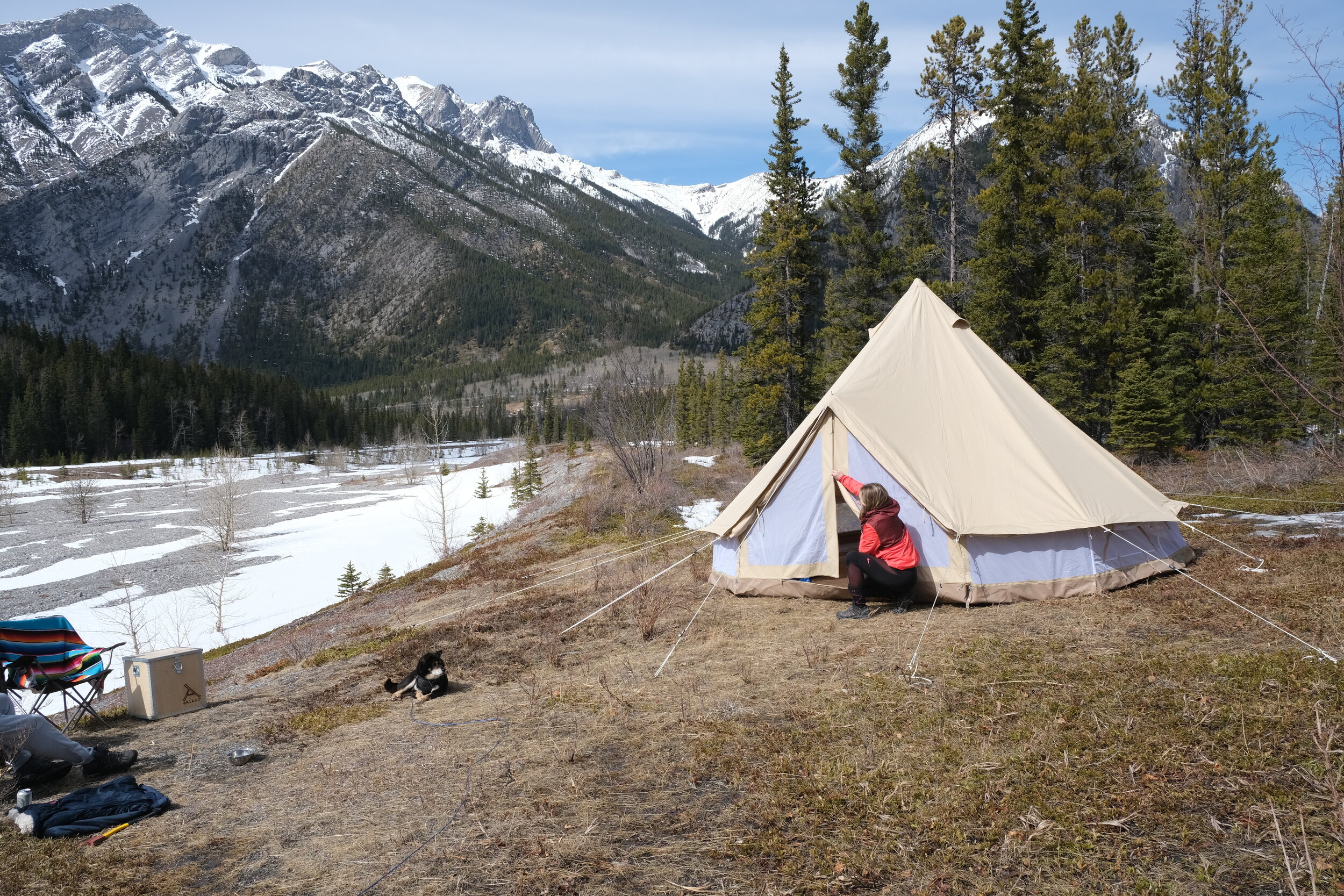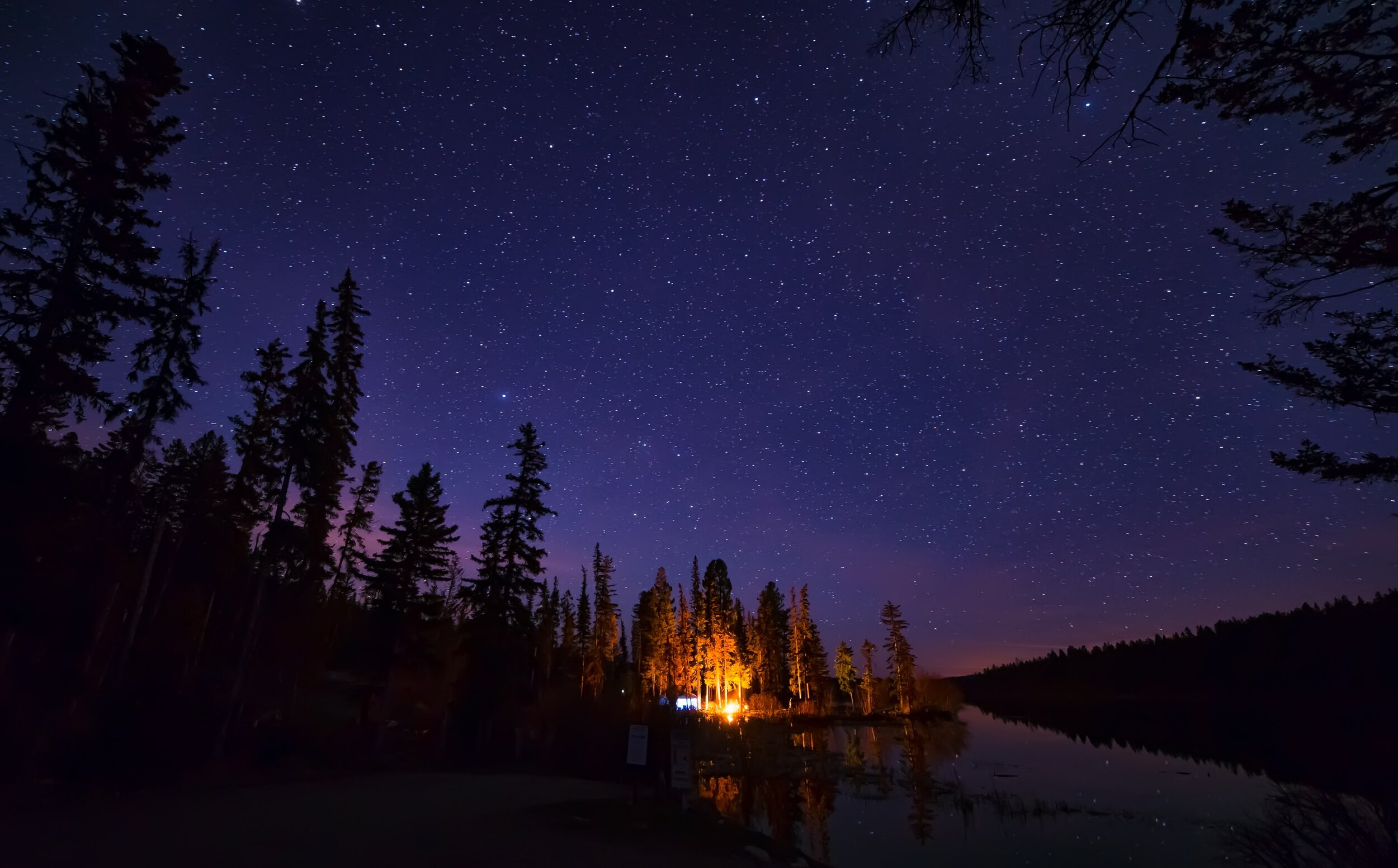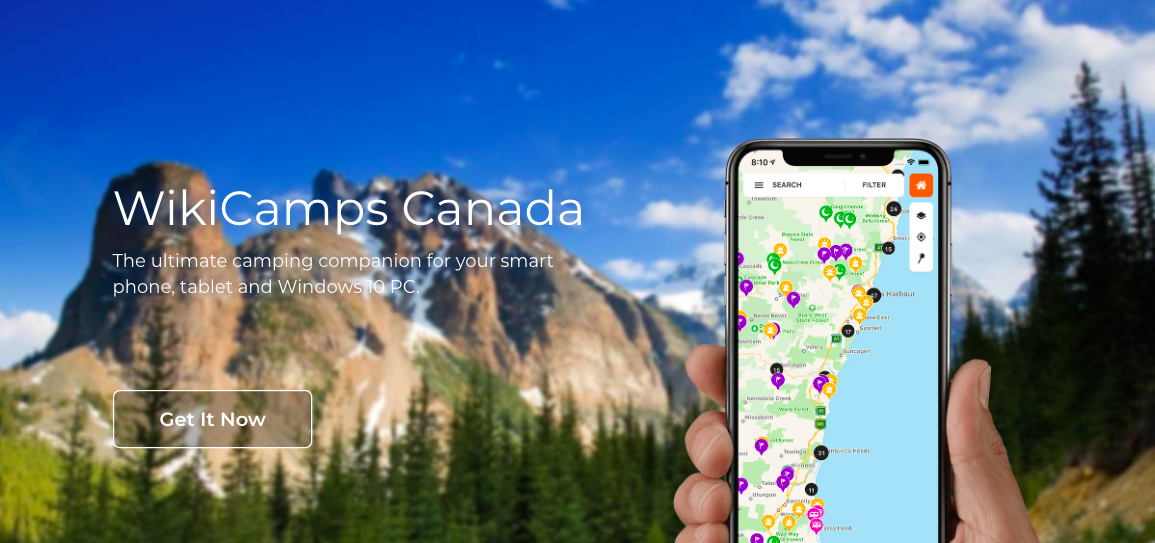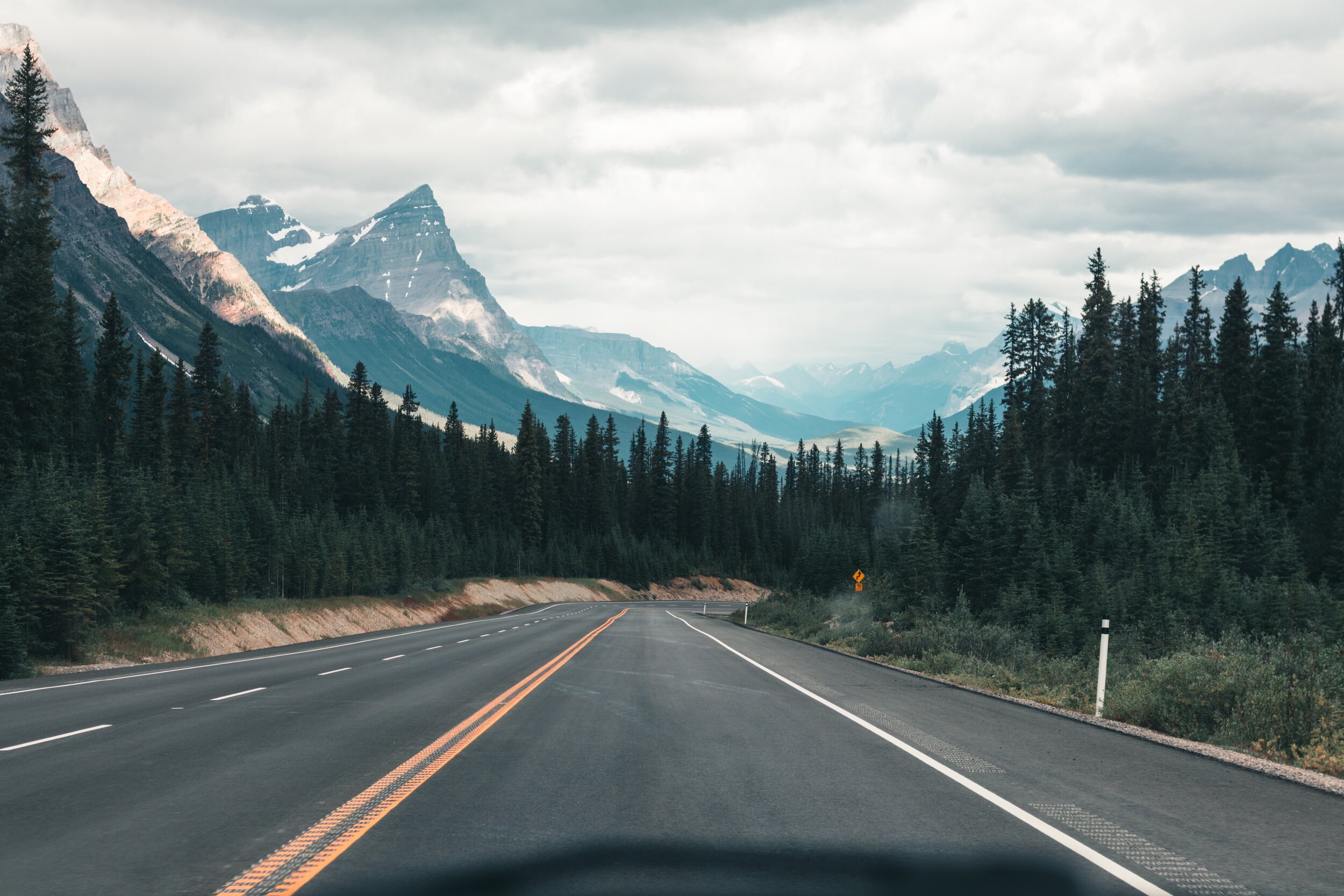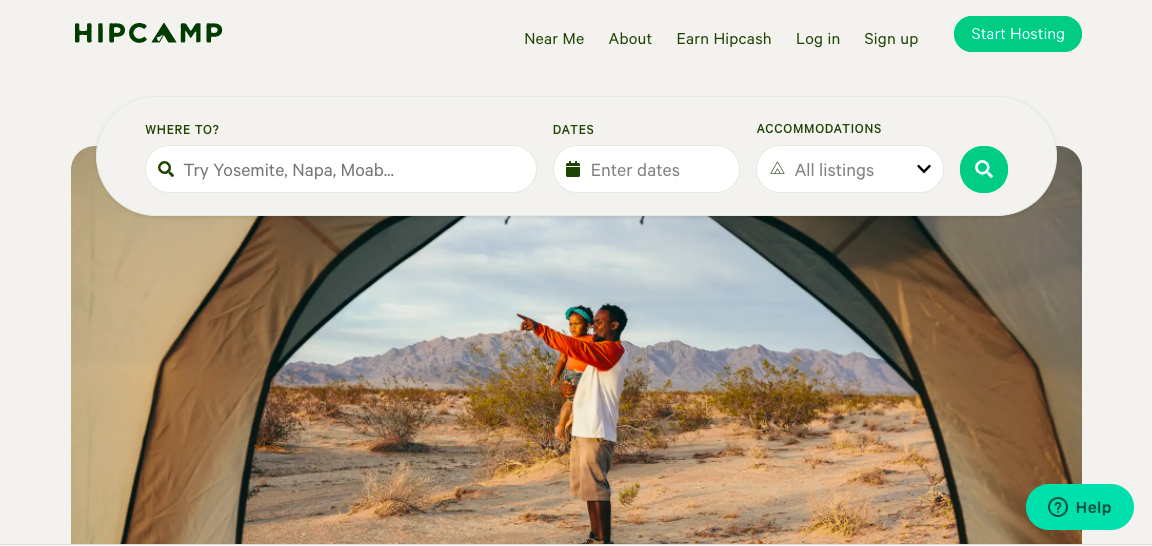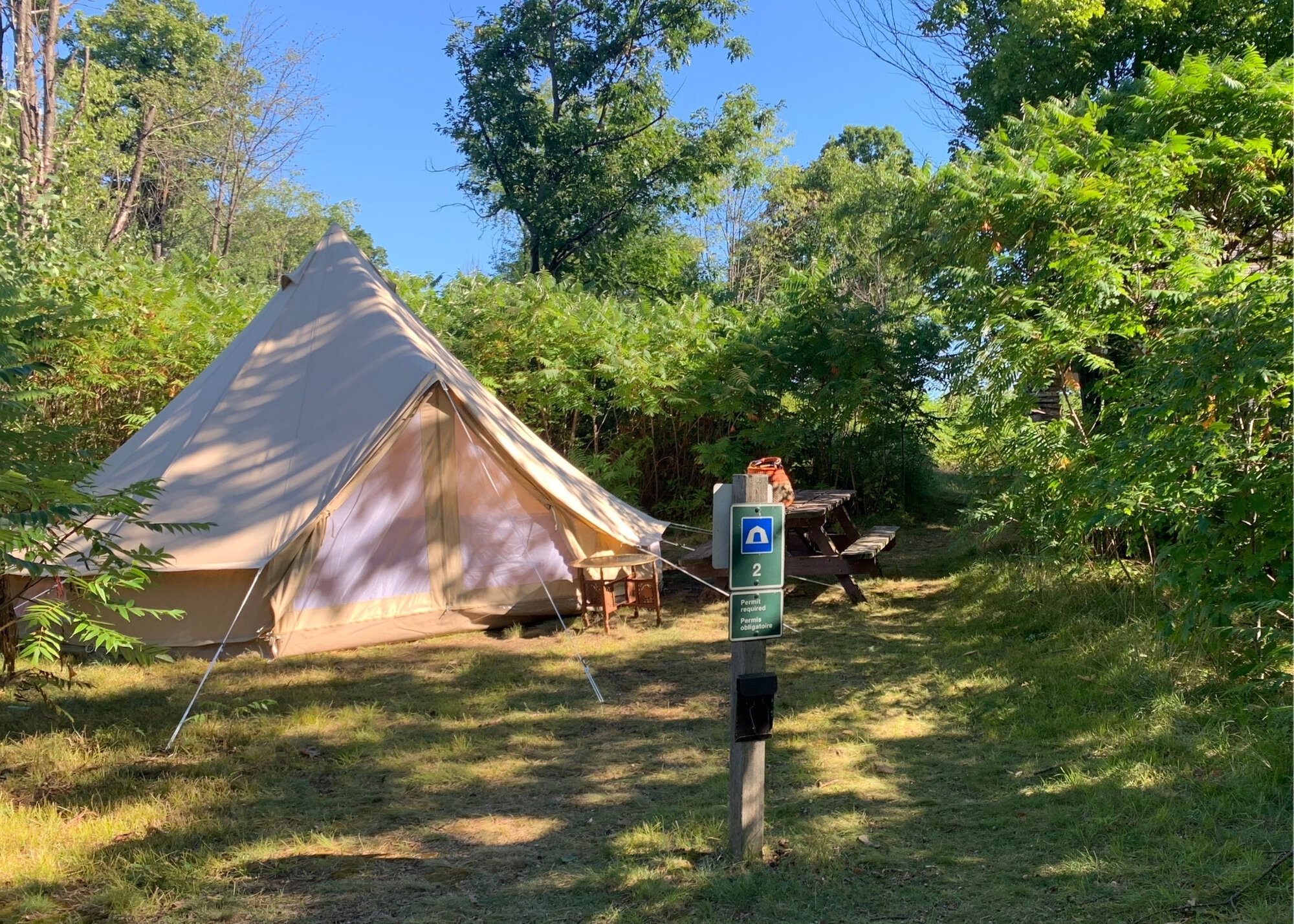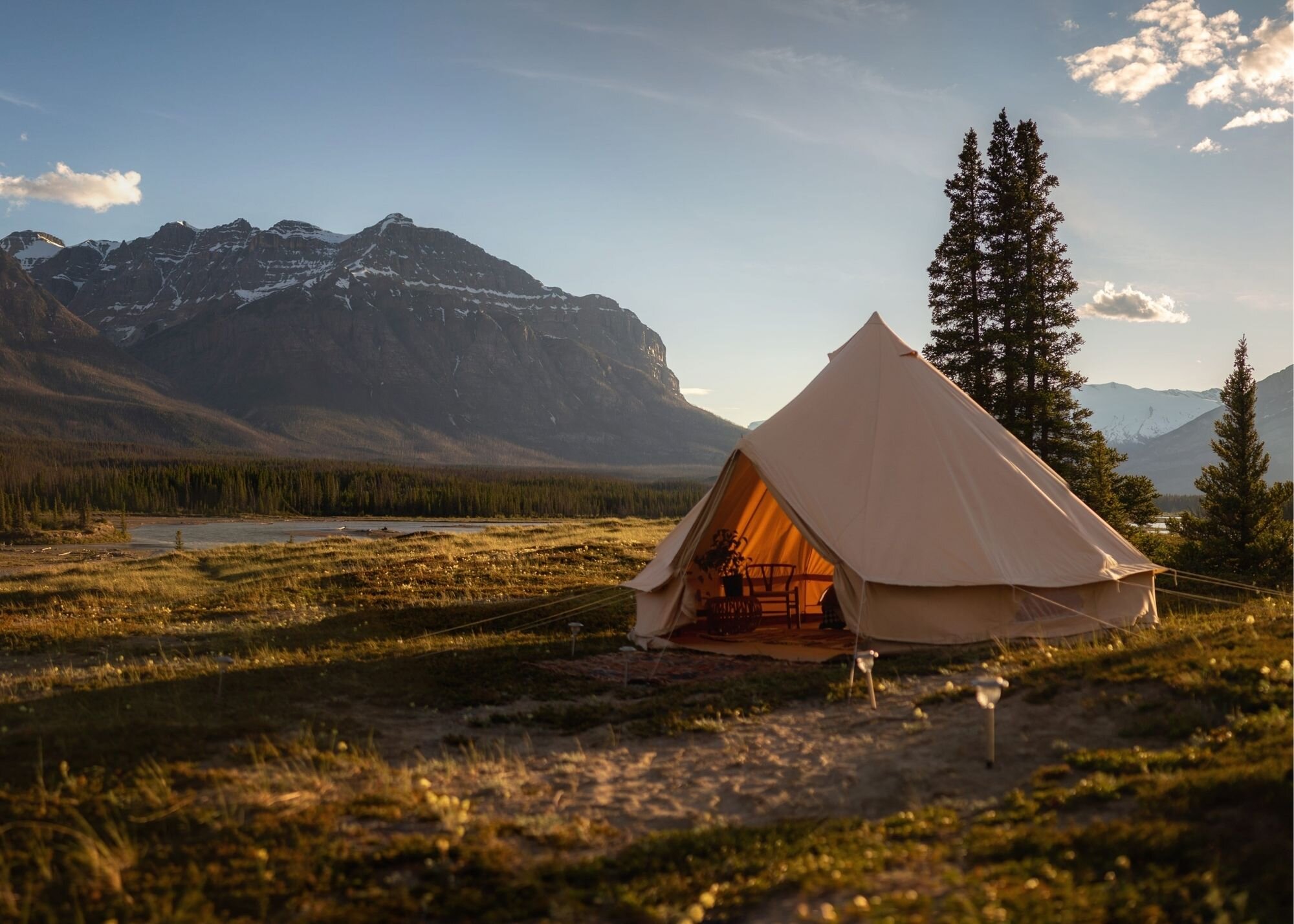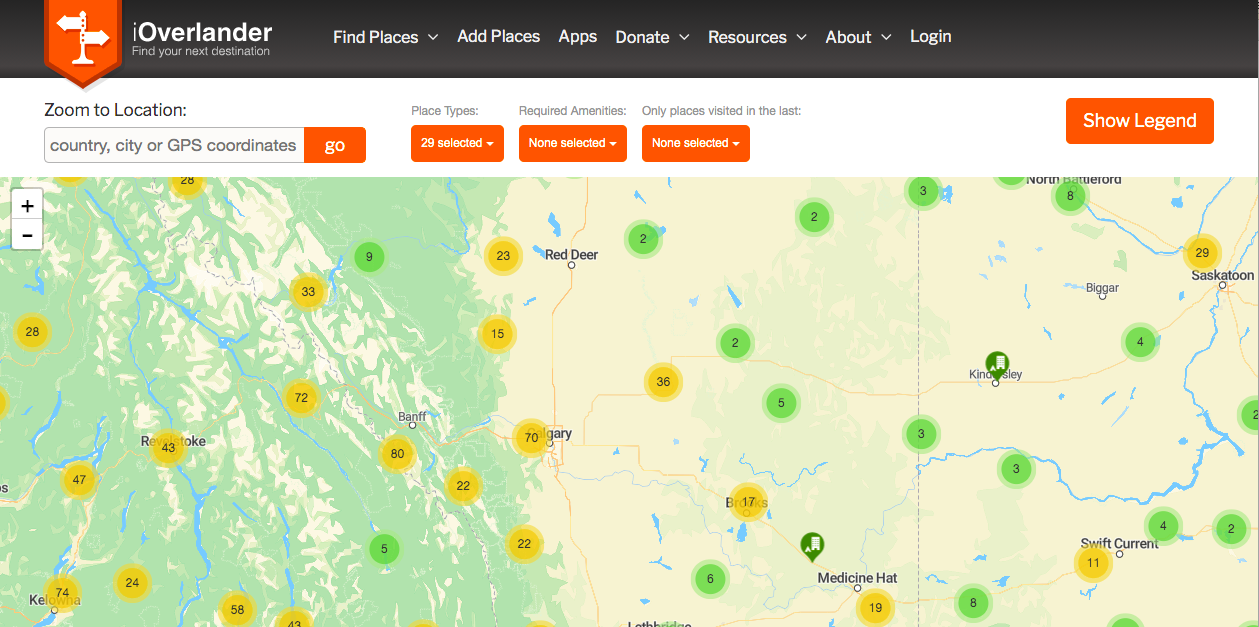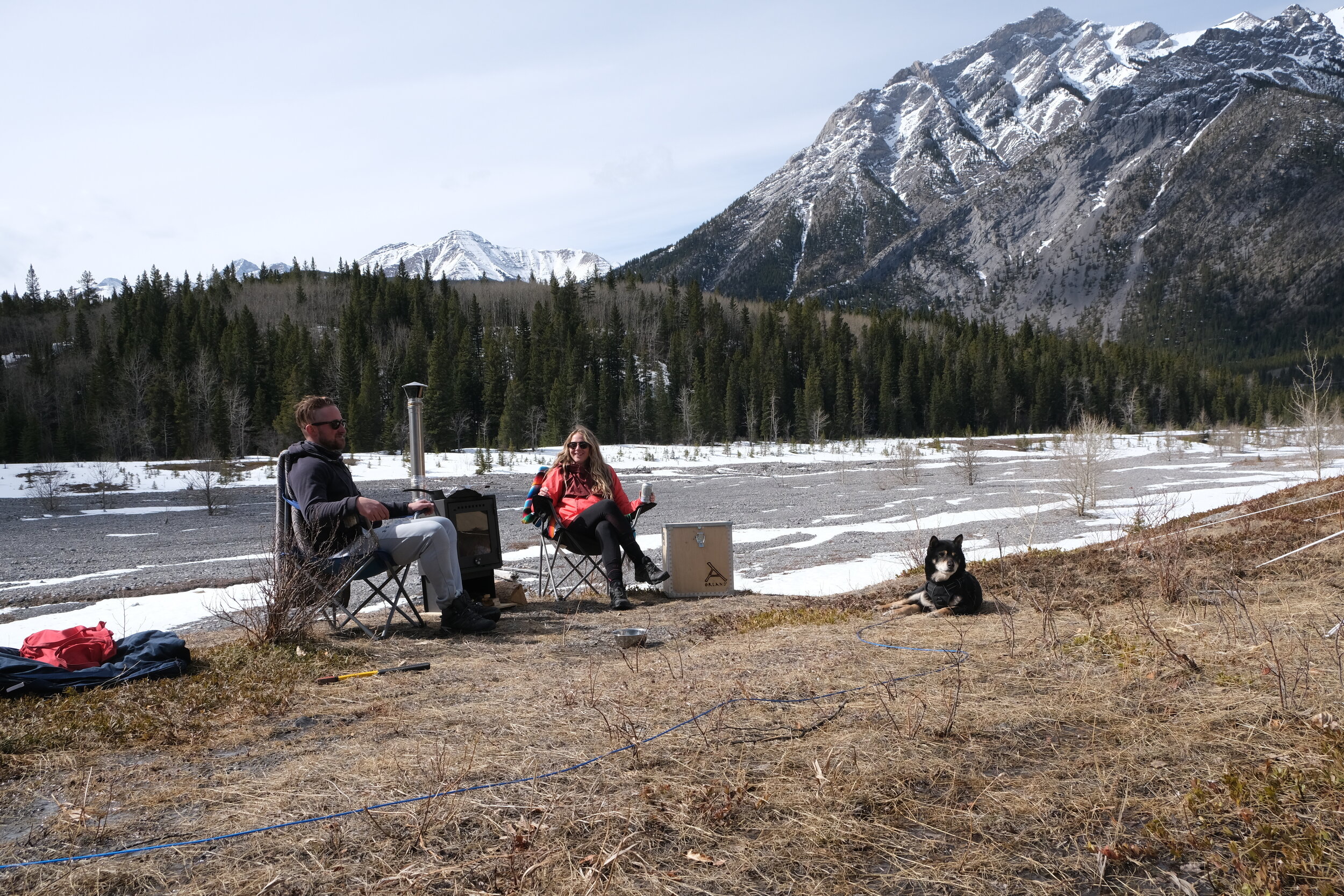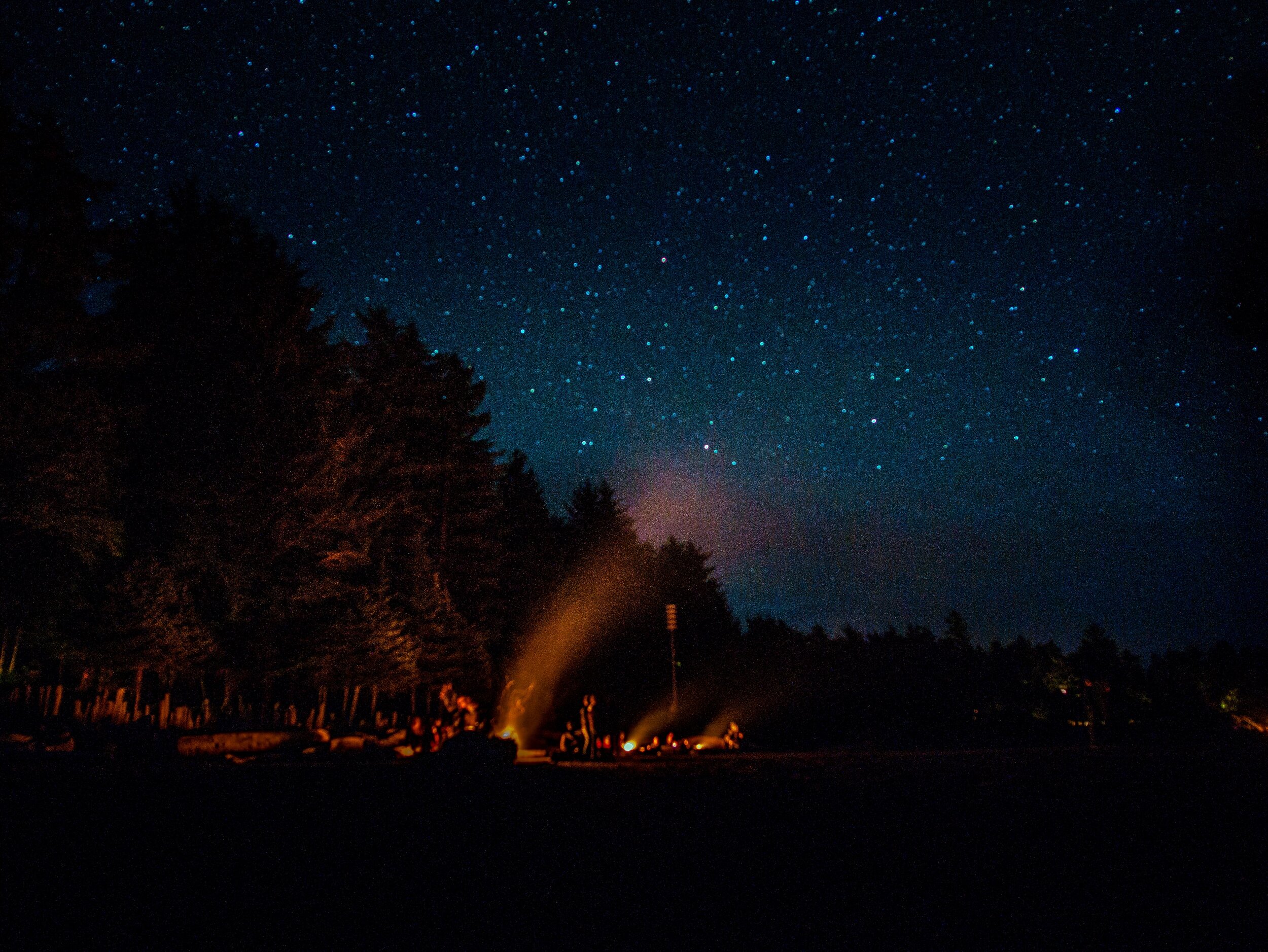The question we get most often from Canadian campers who are new to canvas camping life is “where would I bring my canvas tent?”
The short answer: anywhere you can car camp! (As long as there’s enough space for the tent, of course.) So, you can plan to pitch your canvas tent at any private or public campground that you can access with your vehicle — you likely don’t want to lug our 45-plus-pound tents in a canoe or horseback.
We Canadians are very lucky — we have so much frontcountry and backcountry, public and private camping to explore. And on top of that, Canada is made up of 89% crown land, where we can camp for free in the great wilderness. Unsurprisingly, we’re often ranked as the top place to camp in the world, thanks to our awesome scenery, abundance of available land, minimal wildlife risk, low pollution, and more.
With all that incredible land to explore, though, searching for the ultimate camp spots in Canada is not as easy as jumping on AirBnB. The most memorable campsites are usually discovered through trial and error or word of mouth. And while paid campsites are fairly easy to find, people tend to hold the hidden crown-land-camping gems close to their chest for fear of overcrowding. Crown land camping has many benefits — including that it’s free for Canadians citizens — but it does require a certain degree of experience and grit.
Here, we cover some great resources to finding the best spots to camp, whether you’re looking for national and provincial jewels or off-the-grid boondocking.
PRIVATE/PAID CAMPING
Find killer paid camping sites with the WikiCamps App
WikiCamps is a user-generated database of paid campsites across Canada with a detailed overview of amenities (facilities, potable water, etc.) at each site. It also has a ton of handy information from information centre locations to garbage dump points.
Best for: Filtering out the site features you want to avoid — think RV parks (if that’s not your thing) and day use areas — and filtering for the amenities you can’t live without (road access and parking).
Hot tip: For those of you who love a good plan, the app is equipped with some nifty features such as a trip planner, camping checklist, a chat forum, etc. to map out your next camping road trip.
Browse HipCamp’s very easy-to-navigate site
Okay, maybe sometimes finding a site is as easy as browsing AirBnB. Introducing HipCamp, an app that connects private landowners to nature lovers looking for unique tent camping, tiny homes, treehouses, glamping, etc. Apart from a beauty Instagram feed, this app includes sites “everywhere from national parks to blueberry farms”. It may just be the next big innovation in the shared economy.
Best for: Anyone looking for a unique campsite without having to explore the parts unknown. Because the sites are located on private property, there are typically fewer restrictions on the types of permitted activities (noted on each property) along with other useful information such as facilities.
Hot tip: The site is relatively new to Canada so continue to check back frequently for new Canadian sites popping up.
Also, there’s a very wide range of campgrounds — from private camping next to a farm stable to open field camping with swaths of other campers — so filter accordingly.
PUBLIC/PAID CAMPING
Book Parks Canada and provincial park sites for a reliable and convenient camping experience
Canada’s parks are part of our national identity. And they’re coveted for good reason — they’re stunning. National and provincial parks are your ticket to camping convenience.
Best for: Families looking to avoid the fuss of searching for the perfect site, lugging firefood, and the “luxury” of nearby-by facilities (read: well-kept outhouses or even flush toilets and running water).
Hot Tips: Booking a national or provincial site can be a rat race, so make sure to mark your calendar for the day that reservations open. And for provincial sites, keep in mind that you may only be able to book three months in advance, depending on the province.
If you forgot to make a reservation, or you just simply enjoy the spontaneity that summer provokes, check out Campnab which consolidates all park cancellations.
Always make sure that the site width, which is typically published online by campsite, is big enough (even the site designated for “large tents” may not be big enough for your canvas tent). And while convenient, not all sites on a campground are vehicle accessible so check this out in advance or bring a wagon!
CROWN LAND/FREE CAMPING
Peek the Crown Land Policy and Atlas but, ultimately, opt for the Backroads Mapbooks and Avenza App
Crown land, otherwise known as public lands, are managed by either the federal or provincial government for purposes ranging from agriculture, watershed protection, and conservation to timber and oil & gas production. Every province has a crown land use policy and atlas outlining the designated areas where you can camp and conduct recreational activities and other helpful information like off-road vehicle use.
Best for: If you’re ready to take your camping experience up a notch by discovering new off-grid sites (and you’re willing to geek out with land use maps).
Hot tip: Provincial government websites were not designed with the user experience in mind. Instead, you may check out the Avenza Maps App that houses thousands of Canadian maps accessible offline with a ton of features, from layers toggles (to turn on/off terrain details, utility lines, waterways, etc.) to what3words technology for unique addresses for off-grid locations. There’s also the OG offline tool: a printed guidebook. The Backroads Mapbooks would be our go-to reco — order online or pick them up at your favourite outdoor store.
Find Canadian Crown Land camping spots with the iOverlander app
iOverlander is a crowdsourced and verified app consolidating both paid and free camp sites (those coveted fee-free spots that are harder to come by). It’s also a cool company powered by passionate volunteers.
Best for: Off-the-beaten-path (but-still-road-accessible) camping. iOverlander not only has a slew of filters related to all things road tripping, but a ton of “informal campsites” and “wild camping” with user descriptions and stats. It’s the real deal when you’re looking for the road less traveled to pitch your canvas tent.
Hot tip: For CitizenCanvas campers looking for that little extra bit of serenity, we recommend looking at sites found within wilderness protected areas and conservation areas across Canada as they typically don’t allow ATVs and RVs. Nova Scotia alone, for example, has 31 wilderness areas offering some sweet campsites.
WikiCamps also includes some free public land use areas to pitch your tent, but it doesn’t appear to be as comprehensive (at this point, anyways).
Join Facebook communities
While yes, people tend to keep their incredible crown land finds in the family, you could pick up some pretty good intel by joining a Facebook group. After all, those perfect crown camping spots are often found from a friend of a friend of a friend. Most provinces have designated crown land Facebook groups — some are more organized than others.
Best for: Building relationships in Facebook groups can be ideal for tracking down those truly coveted sites, while picking up some tips along the way for the raddest gear on the market.
Hot tip: Use post topics to navigate/avoid asking a question that’s been answered multiple times (ie #Lookingforspots). Similarly, make sure to familiarize yourself with the hashtag categories so others can benefit from your posts.
Here are some examples:
Planning your next Camping Trip
On apps like WikiCamps, iOverlander, and HipCamp you will usually find some useful information about the camp site to help you prepare. Here are some particularly important things to note before wandering into the wild, regardless of the type of campsite you land on:
- The exact coordinates as there may not be any road signs or addresses.
- What kind of recreational activities are permitted. You can check out apps like iHunters for hunting or Fishing Spots for fishing.
- Whether there are facilities nearby. Most crown land won’t have facilities but there may be some close to a public park you can always use.
- The drive-in conditions (and whether your front bumper will make it or not). Keep in mind that all that gear in your trunk will weigh your car down, making it even lower to the ground (and the last thing you want is a broken-down vehicle in the wilderness).
- How far the walk from the car to the campsite is. Even on crown land there are restrictions on where you can have motor vehicles, which may dictate how much or what you bring as you may be camping far from your vehicle.
- If crown land camping, how long your Provincial government allows campers in a certain area (typically 14 – 21 days in one spot).
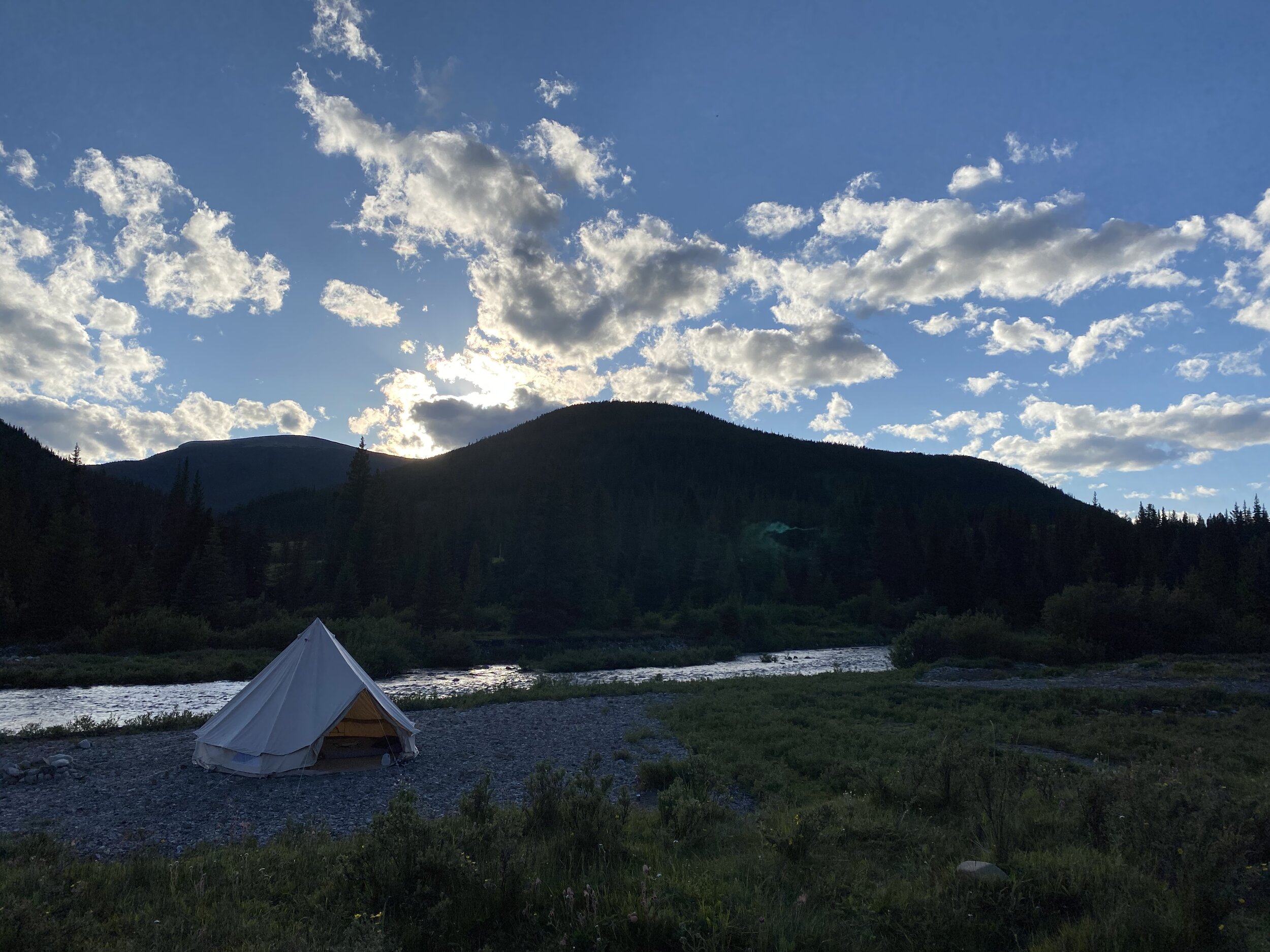
It’s likely obvious to state this but we feel it’s our duty: these considerations relate only to the physical environment. There are many other things to keep in mind, especially as it relates to safety (weather conditions, basic survival techniques, protection against wildlife, etc.). So, make sure you are well educated before wondering off too far.
Apps like iOverlander and WikiCamps work offline so don’t forget to bring these camping companions along. And if you’re really not up for relying on the North Star, make sure to install the Avenza app. There are many other camping websites out there that we didn’t mention — such as Ultimate Campgrounds and FreeRoam — so do your research or start your own forum with your friends (or friends of friends of friends) to determine which makes most sense for you.
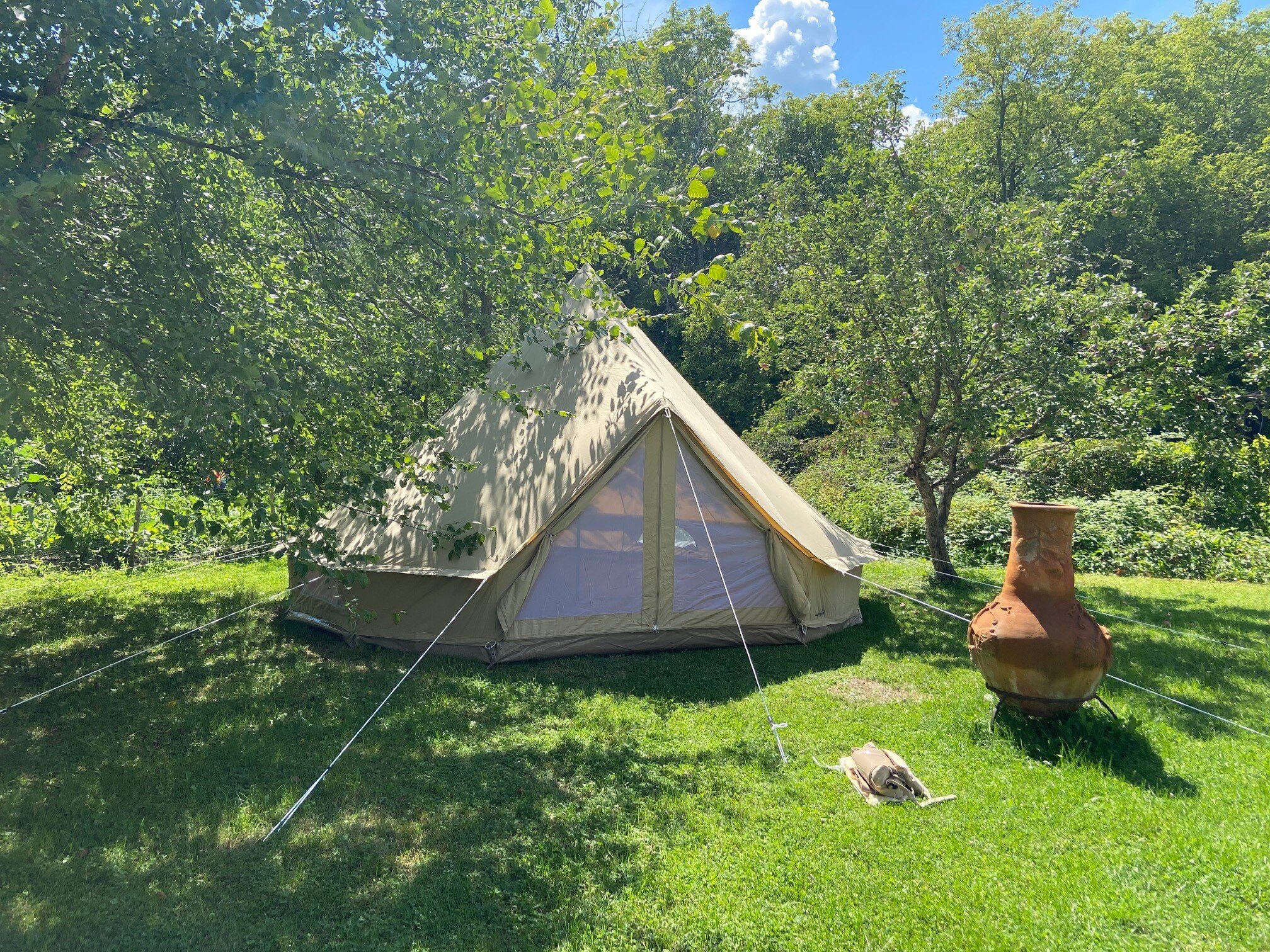
You don’t have to settle when it comes to choosing a campsite, so you shouldn't settle when it comes to the gear you use to explore Canada’s incredible outdoors. Canvas tents offer a natural and comfortable way to do so. Check out why Canvas is the way to go in Canada.


